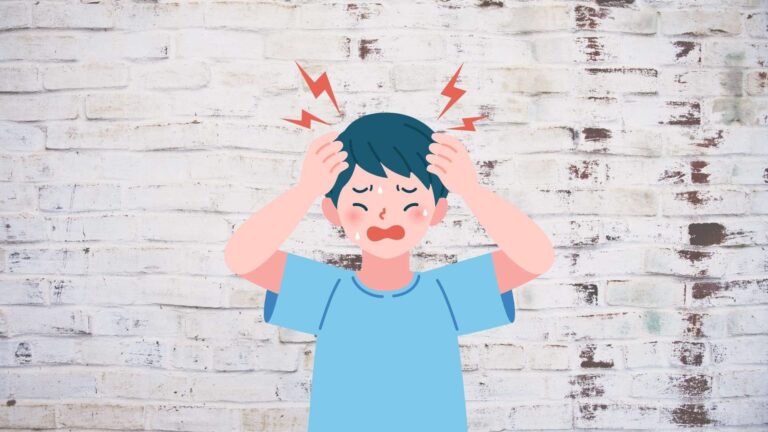Migraine


A headache of varying intensity, often accompanied by nausea and sensitivity to light and sound.
Migraine headaches are sometimes preceded by warning symptoms. Triggers include hormonal changes, certain food and drink, stress and exercise.
Types of migraine
Migraine with aura. A type of migraine where you have a warning sign (an ‘aura’) that a migraine attack is going to happen
Migraine without aura. The most common type of migraine
Chronic migraine
Migraine with brainstem aura.
Vestibular migraine.
Abdominal migraine.
Hemiplegic migraine
Menstrual migraine
- It is thought to be the result ofabnormal brain activity temporarily affecting nerve signals, chemicals and blood vessels in the brain.
- Hormonal changes in women. Fluctuations in estrogen, such as before or during menstrual periods, pregnancy and menopause, seem to trigger headaches in many women.
- Hormonal medications, such as oral contraceptives, also can worsen migraines.
- Drinks. These include alcohol, especially wine, and too much caffeine, such as coffee.
- Stress. Stress at work or home can cause migraines.
- Sensory stimuli. Bright or flashing lights can induce migraines, as can loud sounds. Strong smells — such as perfume, paint thinner, secondhand smoke and others — trigger migraines in some people.
- Sleep changes. Missing sleep or getting too much sleep can trigger migraines in some people.
- Weather changes. A change of weather or barometric pressure can prompt a migraine.
- Medications. Oral contraceptives and vasodilators, such as nitroglycerin, can aggravate migraines.
- Food additives. These include the sweetener aspartame and the preservative monosodium glutamate (MSG), found in many food
Following are some foods that fight migraines, tension headaches, cluster headaches, caffeine headaches, and headaches in general.
Leafy greens. Leafy greens contain a variety of elements that contribute to headache relief.
Nuts.
Fatty fish.
4. Fruits.
Seeds.
Whole grains.
Legumes
Migraine-Triggering Foods
Excessive Coffee.
Red Wine.
Aged Cheeses.
Chocolate.
Citrus Fruits.
Aspartame and Other Artificial Sweeteners.
Yeast.
Monosodium Glutamate (a.k.a. MSG)
- Avoid loud noises and bright lights
Loud noises, flashing lights and sensory stimulation are common triggers for migraine headaches. They include-
- driving at night
- being in movie theaters
- attending clubs or crowded venues
- experiencing glare from the sun
- Take breaks from the TV or computer screen to rest your eyes.
- 2. Pay attention to food choices
Certain foods and drinks can initiate headaches, such as
- chocolate
- red wine
- processed meats
- sweeteners
- cheese
Know which foods and additives bring about a headache for you and learn to avoid them. Foods and drinks with caffeine or alcohol — especially red wines or champagne — are common triggers.
- Beware of hormonal changes
Hormones play a significant role in terms of migraines. Many women tend to experience more migraine headaches during, or just before, their menstrual period. Oral contraceptives and hormone replacement therapy (HRT) may increase the frequency and severity of migraines. Some women may find relief by switching to another form of birth control, while others may find they have fewer migraines while taking birth control pills.
- Pay attention to the weather
Changes in the weather can impact your migraine patterns. High humidity and hot temperatures can stimulate headaches, as well as rainy days. If the weather becomes uncomfortable for you, you may need to step inside and take a break from the outdoors.
- Eat and sleep on a regular schedule
Fasting or skipping meals can trigger migraine headaches. Make sure you eat within an hour of waking up and then every three to four hours. Hunger and dehydration both cause migraines.
Lack of sleep can also aggravate symptoms, so make sure you clock in at least seven to eight hours. Even getting too much sleep can cause headaches, so don’t try to make up for lost sleep by snoozing too long.
- 6. Avoid stress
Migraines are a common result of stressful events. Relaxation techniques such as meditation, yoga, and biofeedback can help reduce levels of stress.
1.Acupuncture and Acupressure.. Acupuncture may significantly reduce migraine attacks and Acupressure May Help Relieve Tense Muscles. Acupressure may also help in migraine-associated nausea.
2. Go for ginger
Ginger has anti-inflammatory properties that may help reduce migraine symptoms. Try drinking ginger tea or adding fresh ginger to your food.
3. Yoga
Yoga uses breathing, meditation, and body postures to promote health and well-being. yoga may relieve the frequency, duration, and intensity of migraines. It’s thought to improve anxiety, release tension in migraine-trigger areas, and improve vascular health
4. Add magnesium to your diet
Magnesium deficiency is linked to headaches and migraines. Rich sources of magnesium include
- almonds
- sesame seeds
- sunflower seeds
- cashews
- peanut butter
- oatmeal
- milk
5.Soothe Pain with a Cold Compress
Using a cold compress may help reduce your headache symptoms
Applying cold or frozen compresses to the neck or head area decreases inflammation, slows nerve conduction and constricts blood vessels, all of which help reduce headache pain .To make a cold compress, fill a waterproof bag with ice and wrap it in a soft towel. Apply the compress to the back of the neck, head or temples for headache relief.
Soothing Therapeutic Solutions From Ayurveda
Triphala Churna.
Ksheera Ghrita.
Sitopaladi Churna.
Dhoomapana.
Nasya.
Butterbur. The purified root extract known as Petasites is used in pill form to treat migraine attacks. According to a 2012 study, Petasites may be effective for migraine prevention when taken twice daily as 50- to 75-milligram doses. This root can be toxic to the liver, so treatment must be monitored by a doctor.
Ginkgo biloba. Made from the leaves of a tree native to China, the anti-inflammatory and antioxidant effects of ginkgo biloba may help ease migraine symptoms. However, more research is needed.












